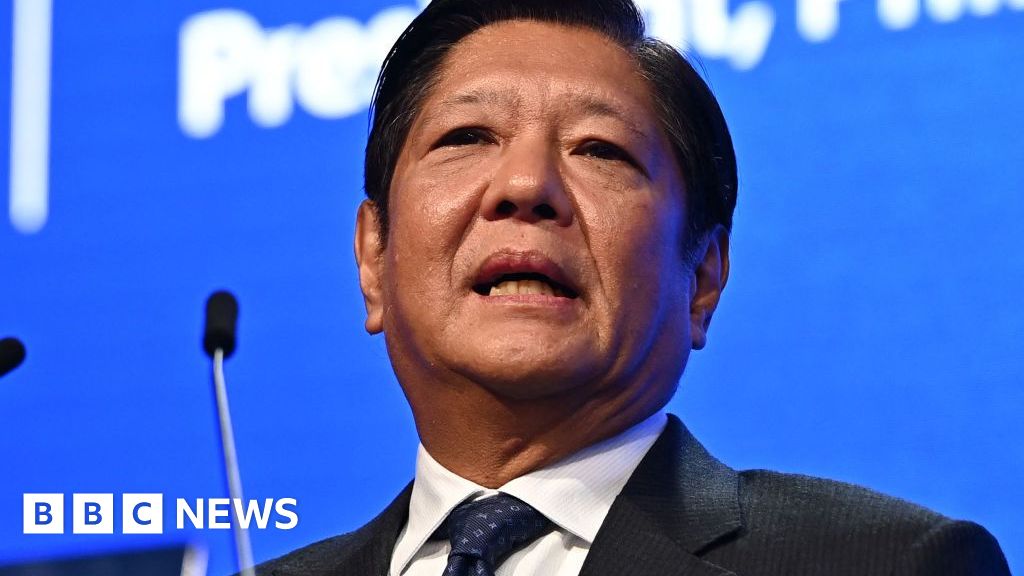Philippine President Ferdinand Marcos Jr has warned China not to cross a red line in the South China Sea, where a standoff between the countries continues to escalate.
If any Filipino died as a result of China’s wilful actions, he said, the Philippines would consider it as close to “an act of war” and respond accordingly.
Mr Marcos was speaking at a security forum in Singapore attended by defence chiefs from around the world, including the US and China.
In response, a Chinese military spokesman accused the Philippines of “deflecting the blame on China” and “smearing and attacking”.
In recent months the longstanding dispute between China and the Philippines over territory in the South China Sea has sharpened into aggressive clashes.
Manila has complained vociferously about Chinese patrol ships firing water cannon at Philippine boats and supply vessels.
Beijing has said that it is defending its sovereignty. Earlier on Friday, a Chinese military spokesman accused the Philippines of making “provocations”.
Observers fear that any escalation could spark a conflict in the South China Sea between the Chinese and Americans. The US is bound by a treaty signed with the Philippines to come to the south-east Asian nation’s defence, should it come under attack.
The US has previously said it will stand by its “ironclad” commitments to its allies in the region, and has sought to draw them closer including holding a summit with the Philippines and Japan last month.
On Friday, Mr Marcos had just finished delivering the opening address at the Shangri-la Dialogue in Singapore when a delegate posed a hypothetical situation where Chinese water cannon killed a Filipino soldier. He was asked if he would consider that a red line, and if this would invoke the US-Philippines treaty.
“If by a wilful act a Filipino – not only serviceman, but even Filipino citizen – is killed… that is what I think very, very close to what we define as an act of war and therefore we will respond accordingly. And our treaty partners, I believe, also hold that same standard.”
He noted that Filipinos have been injured in recent clashes, but none had been killed yet. “Once we get to that point, that is certainly, we would have crossed the Rubicon. Is that a red line? Almost certainly it’s going to be a red line.”
Asked by the BBC, the Chinese spokesman said that “if one only personnel was accidentally killed in a conflict or accident that triggers war, then I really believe it’s a belligerent country”.
Mr Marcos’s government is beefing up its military spending and has acquired missiles from the US and India. It is angling to get a sizeable chunk of a proposed US military aid package for its allies in the Indo-Pacific region.
The issue had also cropped up in a key meeting between US Secretary of Defence Lloyd Austin and his Chinese counterpart Dong Jun earlier on Friday.
The Chinese military said the Philippines was “emboldened and supported by outside powers” and “has broken its own promises and making provocations” over the disputed Second Thomas Shoal where Manila has established a military outpost.
They also objected to the US sending a mid-range missile system to the Philippines in a recent joint military exercise, saying it “posed a real threat to regional security”.
But both the US and China also signalled they were keen on keeping communication lines open.
A US statement on the meeting said they were working on resuming telephone conversations between military commanders – a key line of communication that was severed in 2022 after then-US House Speaker Nancy Pelosi’s visit to Taiwan – and on establishing a crisis communications working group.
Mr Wu told reporters that the meeting was “positive, practical and constructive”. He added that the US-China relationship was “stabilising from further deterioration”.

